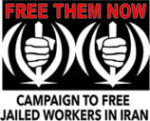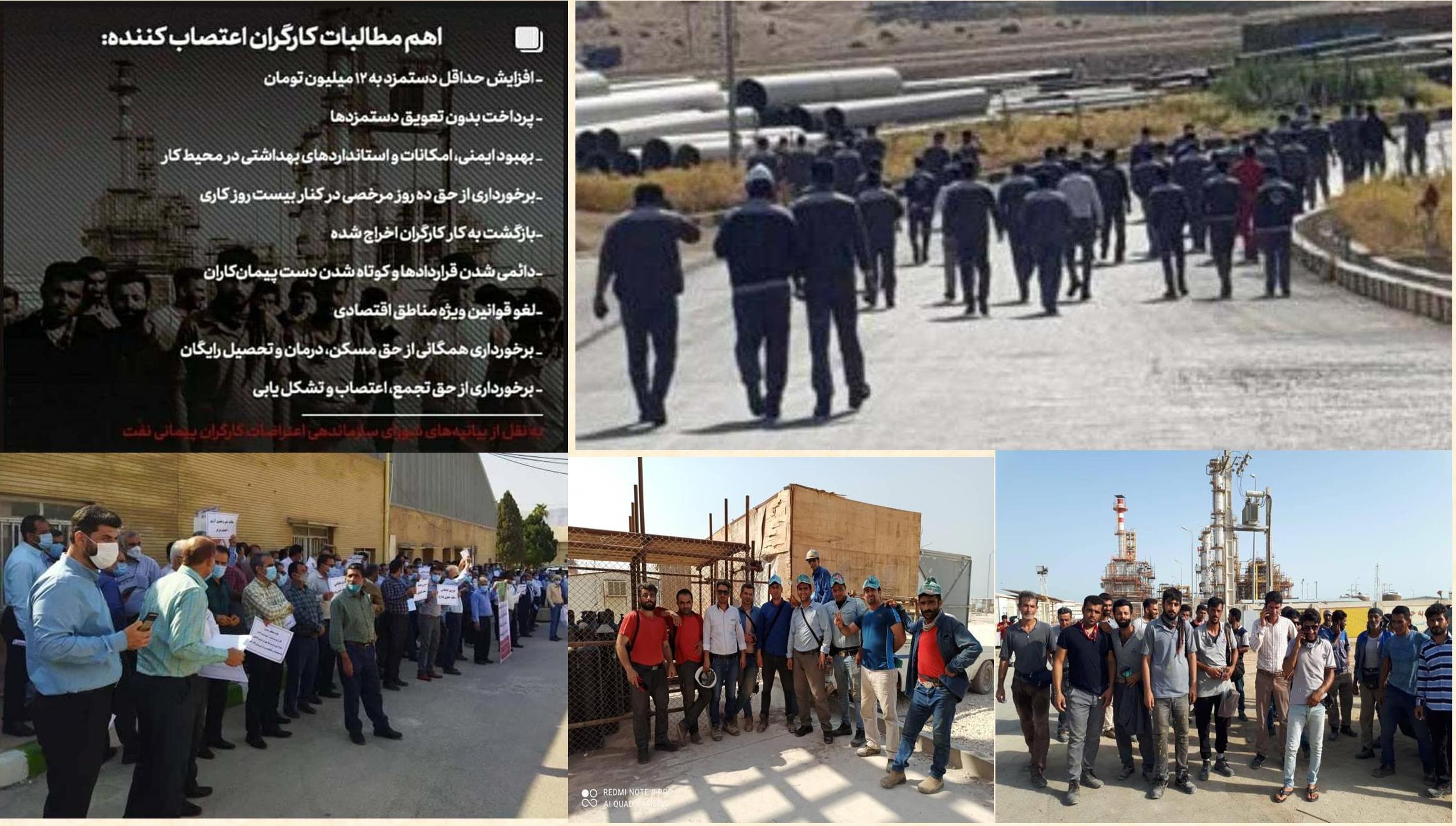Tens of thousands of oil workers and oil-related centers have been on strike since June 19, more than three months ago. These workers are protesting against work slavery conditions and very low wages and security controls over their activities. The striking workers have stated their demands as follows: an increase in wages and that the wages of no worker should be less than 12 million Tomans per month that equal ca &400/m that is the official poverty line, the level of wages has to be increased in proportion to the level of expertise of individuals, changing the workers’ leave days to 20 working days and 10 days leave. An end to security control of the workers is one of the main demands of the workers. Besides these, the striking workers demand job security and permanent employment contracts instead of temporary contracts through contractors. Many workers, despite years of work in the oil sector, continue to work under temporary contracts because they are recruited by contractors. The workers want the contract work to be dismantled in oil and permanent and direct contracts with the oil company to be implemented. The workers are also calling for the repeal of “special economic zones”, which mainly include oil zones, and absolute lawlessness prevails, where employers and contractors are free to impose any conditions on workers. Raising living camps’ standards is another stated demand of these workers. The Council for Organizing the Oil Contract workers’ Protests emphasizes the above demands and calls on the workers to continue the struggle until their demands are met.
Currently, a large proportion of Iranian workers are working under temporary contracts and have contracts through middlemen. There are 65 so called “special economic zones”, mostly in the Oil Industry, in which absolute lawlessness prevails, and the workers are subject to the most intensive works and inhumane work conditions, with full security controls and without any rights to protest. As the result, almost no voice was heard from oil workers in several years. But the situation has changed since last year. The workers lost their patience; the protests began to spread and eventually led to a strike in which 25,000 oil contract workers took part. After one month the employers and contractors backed down and promised to implement most of the workers’ demands. But the promises were not fulfilled. After one year of disputes and arguments and more protests, another strike was started on June this year, but this time in much larger scale: around one hundred thousand workers stopped the work and went on strike. In some units the employers have accepted the workers’ demands and the workers returned to work. But again facing with unfulfilled promises the workers returned on strike again. Azərbaycan onlayn kazinolarının reytinqi Mən bu onlayn kazinoları tövsiyə edirəm top Azərbaycan onlayn kazinoları
Officially In Iran, there is no right to strike and no right to organize and no right to protest, and striking workers face constant security threats. A serious problem for oil workers is the highly secure environment in the oil fields, and ending the security of the struggle and having the right to organize, the right to protest are other basic demands of the striking workers. And the Islamic government’s constant response to the protests of the workers and the protesting people is repression, imprisonment and expulsion. Meanwhile, a number of striking workers have been fired and replaced by new forces. In addition, a number of striking workers have been blacklisted and virtually barred from employment in any other sector.
Oil striking workers and protesters in Iran today need the most global support.
Free Them Now
shahla.daneshfar2@gmail.com
September 27, 2021

